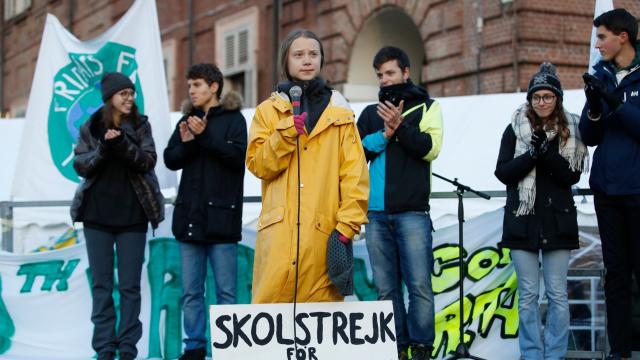All over the world, kids are saying world leaders’ weak climate policies are putting their futures at risk. They’re right, new research shows.
Not a single country is doing enough to protect kids from the climate crisis and the degradation of ecosystems, along with war, inequality and predatory marketing practices, according to a report published in Lancet on Wednesday.
The study, which was conducted by 40 scientists convened by Lancet, the World Health Organisation, and the United Nations Children’s Fund, analysed data from 180 countries. The researchers found that children’s health and wellbeing is threatened by “environmental and existential threats” in every country they looked at.
Based on an assessment of a number of ecological and existential threats, the researchers found that kids in nations with high carbon footprints are healthiest, while those with smaller ones suffer the most. That mirrors the climate crisis as a whole, with poorer countries who contributed the least to crisis suffering its worst impacts, furthering inequality.
“More than 2 billion people live in countries where development is hampered by humanitarian crises, conflicts, and natural disasters, problems increasingly linked with climate change,” Senegal’s Minister of Health Awa Coll-Seck, the study’s co-chair, said in a statement.
Kids in Norway, South Korea, and the Netherlands have the best shot at good health, education, and nutrition. All three are developed countries where carbon emissions per capita are in the realm of 10 metric tons, according to the World Bank. Children in Central African Republic, Chad, and Somalia—countries that emit between 0.05 and 0.07 metric tons per capita—face the worst odds.
In addition to ecological threats, the report warns that marketing fast food, sugary drinks, alcohol, and tobacco to children are putting them at risk of health problems such as obesity and lung disease. Kids see as many as 30,000 television advertisements in a single year.
“Despite improvements in child and adolescent health over the past 20 years, progress has stalled, and is set to reverse,” former Prime Minister of New Zealand and Co-Chair of the Commission, Helen Clark, said in a statement. “It has been estimated that around 250 million children under five years old in low- and middle-income countries are at risk of not reaching their developmental potential, based on proxy measures of stunting and poverty. But of even greater concern, every child worldwide now faces existential threats from climate change and commercial pressures.”
Taking on these widespread issues will require radical changes to protect children’s wellbeing. The report calls for world leaders to stop emitting carbon dioxide altogether, put kids at the centre of sustainability plans, and invest in and legislate children’s health and rights. It also calls for leaders to incorporate children’s voices into policy decisions and to tighten regulations on commercial marketing.
“Countries need to overhaul their approach to child and adolescent health, to ensure that we not only look after our children today but protect the world they will inherit in the future,” said Clark.
In other words, as teen activist Greta Thunberg recently said, “act as if you loved your children above all else.”
